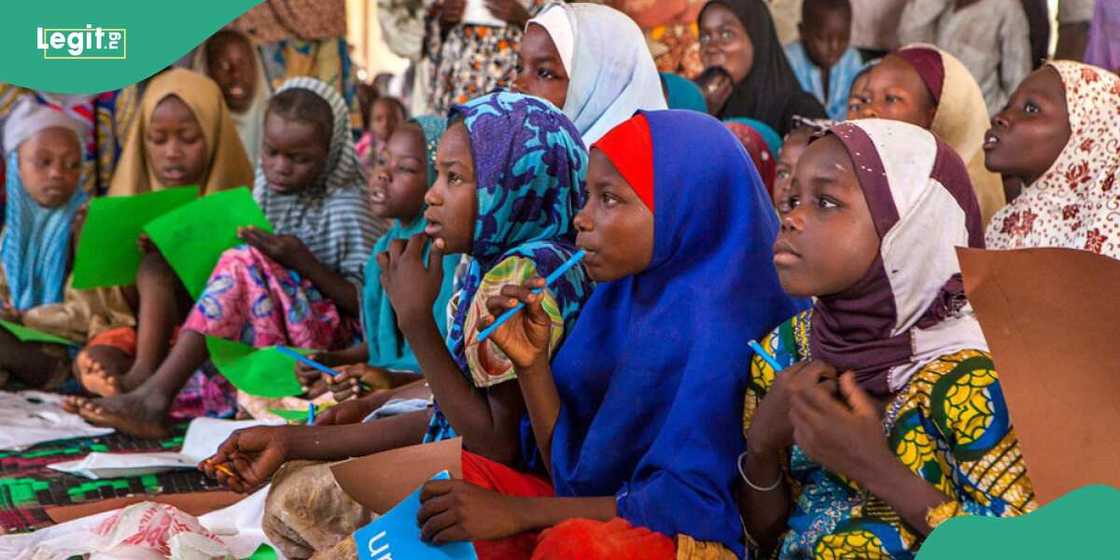Nigeria Tops Global Ranking With 18.3M Out-of-School Children, Affected States Emerge
- At this crucial time in the country led by President Bola Ahmed Tinubu, about 18.3 million children have no access to primary education in Nigeria
- UNICEF made this disclosure recently as it decried the increasing number of out-of-school children in Nigeria
- The Chief of the Bauchi Field Office, Dr. Tushar Rane, provided solutions and urged the current government to do the needful
Legit.ng journalist Esther Odili has over two years of experience covering political parties and movements.
The increasing number of out-of-school children in Nigeria is now 18.3 million, as disclosed by the United Nations Children’s Fund (UNICEF).

Source: Facebook
Bauchi, Gombe and Adamawa states are most affected
As reported by Vanguard, UNICEF lamented bitterly over the development and noted that this alarming figure positions Nigeria as the country with the highest number of out-of-school children globally.
Dr. Tushar Rane disclosed this information during a two-day Regional Stakeholders Engagement Meeting in Gombe state.
The meeting is set to provide retention, transition, and completion Models in Bauchi, Gombe, and Adamawa states.
“Unfortunately, this positions Nigeria with the challenge of having the largest number of out-of-school children globally,” Rane stated.
UNICEF: "Only 63% of Nigerian children attend school regularly"
Worried about the decline, Dr. Tushar further highlighted that only 63% of primary school-age children regularly attend school.
Expressing concern over the increasing dropout rates across all genders at the primary level, he said only 84% of children transition to junior secondary education after completing primary school.
Education crisis: Major factors responsible for the decline
He attributed this trend to various factors, including inadequate evidence-based policies, limited budget allocation, teacher and classroom shortages, poor infrastructure, cultural norms, health and safety concerns, and child labour.
To address this challenge, UNICEF said it is collaborating with the Universal Basic Education Commission to develop the “National Framework of Action to Reduce the Number of Out-of-School Children in Nigeria” and the “Retention, Transition, and Completion Model.”
Factors contributing to out-of-school children challenge
Meanwhile, Legit.ng reported that Abdulrahman Ado, an education specialist at the United Nations Children's Fund (UNICEF) Bauchi field office, said Nigeria contributes about 15% to the number of out-of-school children globally.
Ado stated that Bauchi state has the highest number of out-of-school children in the northeast region.
He explained that according to a Nigeria Education Data Survey (NEDS) report of 2018, Nigeria is unlikely to achieve Sustainable Development Goals, adding that the country still maintains the enrollment figures of 1995 of 60%.
PAY ATTENTION: Stay Informed and follow us on Google News!
Source: Legit.ng




